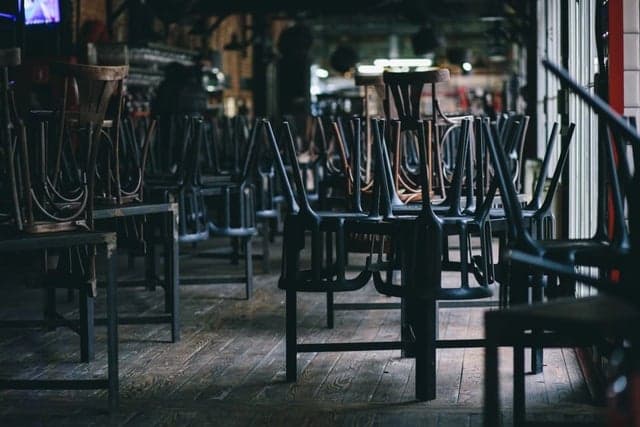Greg Sherwood MW: Hitting the reset switch after lockdown
By Greg Sherwood, 13 May 2020
There are many intrigues and ironies floating around at this reflective time of lockdown. The UK, like South Africa, might not be free of the chains of lockdown bureaucracy just yet, but already the questions are being asked of national governments as to how some semblance of normality can possibly be restored without risking further economic damage or equally a potentially devastating second spike of coronavirus infections. While almost 70% of UK firms have now furloughed staff, it is thought that as of early May, Her Majesty’s Treasury is now paying the full or partial salaries of up to 25-30% of the entire UK adult working population.
The dichotomy of the current situation is that so many of the current opposition Labour members of parliament initially saw this crisis in its early onset as an opportunity to highlight the fact that Covid-19 is both gender and colour blind, and more importantly, blind to both affluence or wealth. The rich were not going to be able to buy their way out of this pandemic. Well, things have not worked out quite like the early agitators envisaged. Data revealed this week by Public Heath England confirms that the coronavirus and its deadly Covid-19 infection does indeed discriminate… and in a big way.
The tragedy of this pandemic in the UK context has revealed that the Covid-19 virus kills more men than women on an approximately 60-40 ratio, that BAME (Black Asian and Minority Ethnic) populations represent 35-40% of those patients in intensive care units despite being a much smaller percentage of the UK population, and that the lower socio-economic groups are indeed being ravaged by this pandemic far more aggressively than the more affluent classes. Talk about tossing the cat amongst the pigeons!
So from a socio-political stand point, the UK certainly has its work cut out for itself in the coming months. But just as major European economies start the initial debates of how to lift economic lockdowns together with how quickly, many in the broader wine trade will want to ascertain just how swiftly major cities expect to be able to re-establish a viable bar and restaurant trade again when governments are dictating strict social distancing rules for possibly the rest of the 2020 calendar.

From everyone I have spoken to in the UK and European wine trade and on-consumption channels, things do not look good at all. Top of the mainstream media agenda may be the possible dates for reopening shops, bars and restaurants, but without a critical mass of consumer trade, none of these establishments will be viable businesses. So while national governments and their media machines debate and discuss the superficial, the on-trade looks on in utter dejection and fear that once lockdown restrictions are lifted, many if not most will have no choice but to remain closed due to either the social distancing rules that will be imposed or because consumers will simply not feel comfortable returning to a similar, socially-intimate lifestyle they practiced before lockdown.
However you cut the pie, the results are suggesting a very, very long and slow recovery for on-trade consumption wine sales including in major hotels, resulting in a massive loss of business for wineries and their distributors. Already in the UK, it is envisaged that up to 30% of food wholesale distribution network businesses will probably go bust in the next 3 months without government support. The knock-on effect for the wine trade can only be imagined. So yes, the situation is serious. But why am I ringing the alarm bells so loudly you may ask? Well, because like all seismic shifts in the tectonic plates of business, big adjustments will be required to accommodate the changing restaurant and wine trade sector moving forward out of the post CV era.
It is not all doom and gloom, well certainly not for the South African wine sector. With the resumption of exports from 1 May, supply channels will soon be restocked and consumers will be assured availability of the many brands they have grown to love. But without doubt, the retail trade is going to be king for the foreseeable future. For those brands that invested heavily in the on-trade and shunned the high street or the independent merchant trade, now is the time sit down and redraw your marketing and sales plans! But never forget, South Africa’s latest and greatest successes have come mostly from the independent wine trade and the traditional fine wine merchants. In this sector, demand remains high and the end-consumers thirsty. So as Leon Schuster always said, now is not the time to be a panic mechanic! It’s time to reset your compass for the next stormy leg of the South African wine journey.
- Greg Sherwood was born in Pretoria, South Africa, and as the son of a career diplomat, spent his first 21 years travelling the globe with his parents. With a Business Management and Marketing degree from Webster University, St. Louis, Missouri, USA, Sherwood began his working career as a commodity trader. In 2000, he decided to make more of a long-held interest in wine taking a position at Handford Wines in South Kensington, London and is today Senior Wine Buyer. He became a Master of Wine in 2007.
Attention: Articles like this take time and effort to create. We need your support to make our work possible. To make a financial contribution, click here. Invoice available upon request – contact info@winemag.co.za








Comments
0 comment(s)
Please read our Comments Policy here.